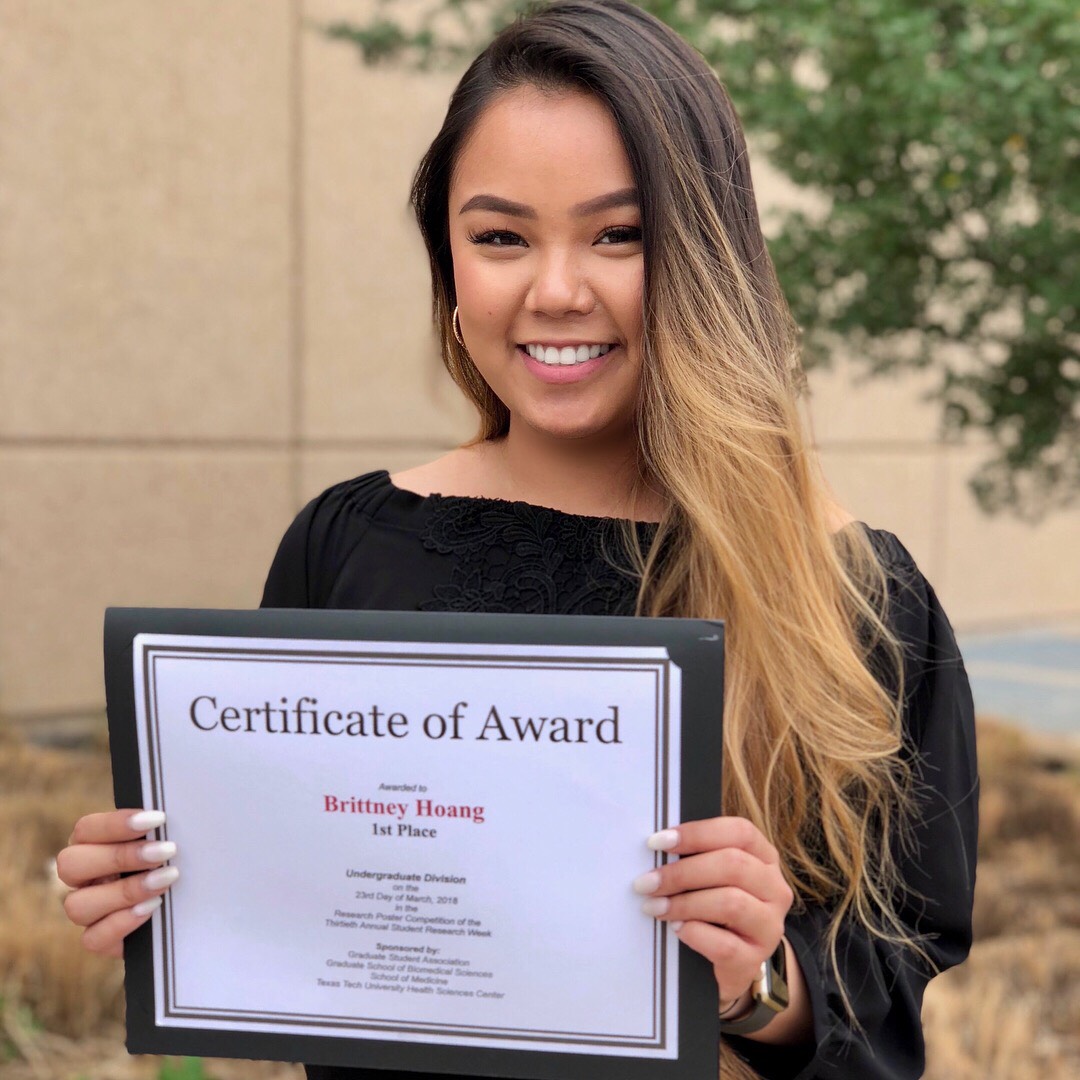Brittney Hoang wins 1st place under Undergraduate Division in the Research Poster Competition of the Thirtieth Annual Student Research Week
Abstract title: Visualizing dysfunctional parvalbumin interneuron networks in a new transgenic mouse model of Alzheimer's Disease

Name of Author(s): Brittney Hoang, Rui Wang, J. Josh Lawrence
Abstract: Alzheimer's Disease (AD) is a progressive disease that affects memory, thinking, and behavior. The most common type of dementia is AD, which leads to memory loss and interferes with daily motor function. Because there is no cure, new treatments are needed to slow or stop disease progression. Hippocampal parvalbumin (PV)-positive interneurons play a central role in network activity and spatial working memory. Several lines of evidence point to PV interneuron networks becoming dysfunctional early in AD pathogenesis. However, as a class, PV interneurons are diverse in morphology, cellular and synaptic functions, and network contributions, making it challenging to study specific inhibitory neuron types systematically. PV-positive interneurons subdivide into basket, bi-stratified, axo-axonic, and the oriens-lacunosum moleculare cells, which occupy different domains of pyramidal cells. Although PV-positive interneurons have been implicated in AD pathogenesis, essentially nothing is known about specific PV subtypes in the context of AD. Here, we aim to investigate which specific PV interneurons are most vulnerable in AD by using a transgenic mouse line to permit precise visualization and identification of distinct PV interneuron subtypes. By crossing PV-CRE and tdTomato (tdT) mice, we generated a homogenous PV-CRE+/+;tdT+/+ mouse line. This enables tdT, a red fluorescent protein, to be expressed in only PV interneuron subtypes. We then crossed homozygous PV-CRE+/+;tdT+/+ into the J20 AD mouse model, obtaining our triple transgenic PV-CRE+/+;tdT+/+;J20+/- mouse. Our study sheds light on how specific PV interneuron subtypes contribute to the etiology of AD, further advancing knowledge that may lead to new treatments for AD.
Event Details
- Name of Event: 30th Anniversary of Student Research Week presented by the Graduate School of Biomedical Sciences at TTUHSC
- Prize: 1st Place in the Undergraduate Division in the Research Poster Competition of the Thirtieth Annual Student Research Week
- Sponsored by: Graduate Student Association, Graduate School of Biomedical Sciences, School of Medicine, Texas Tech University Health Sciences Center
Honors College
-
Address
McClellan Hall, Box 41017 Lubbock, TX 79409-1017 -
Phone
806.742.1828 -
Email
honors@ttu.edu
